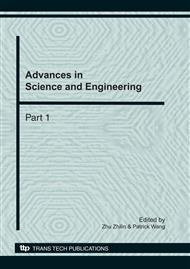p.117
p.121
p.127
p.133
p.140
p.149
p.156
p.162
p.167
Denoising of ECG Signal Based on Empirical Mode Decomposition and Adaptive Noise Cancellation
Abstract:
To remove the noises in ECG and to overcome the disadvantage of the denoising method only based on empirical mode decomposition (EMD), a combination of EMD and adaptive noise cancellation is introduced in this paper. The noisy ECG signals are firstly decomposed into intrinsic mode functions (IMFs) by EMD. Then the IMFs corresponding to noises are used to reconstruct signal. The reconstructed signal as the reference input of adaptive noise cancellation and the noisy ECG as the basic input, the de-noised ECG signal is obtained after adaptive filtering. The de-noised ECG has high signal-to-noise ratio, preferable correlation coefficient and lower mean square error. Through analyzing these performance parameters and testing the denoising method using MIT-BIH Database, the conclusion can be drawn that the combination of EMD and adaptive noise cancellation has considered the frequency distribution of ECG and noises, eliminate the noises effectively and need not to select a proper threshold.
Info:
Periodical:
Pages:
140-145
DOI:
Citation:
Online since:
November 2010
Authors:
Price:
Сopyright:
© 2011 Trans Tech Publications Ltd. All Rights Reserved
Share:
Citation:


